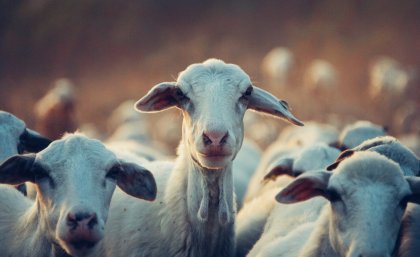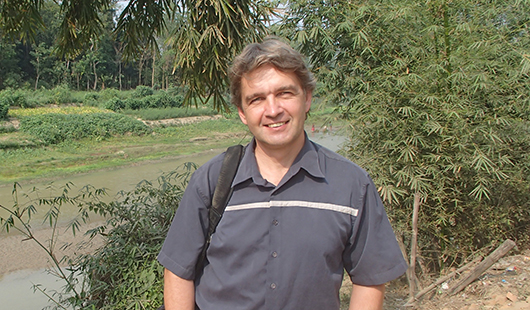
A University of Queensland researcher is helping train 'animal-disease detectives' to protect animals and humans from the threat of future pandemics.
Associate Professor Joerg Henning is part of the Asia Pacific Consortium of Veterinary Epidemiology (APCOVE) project, teaching veterinarians and animal epidemiologists in South East Asia how to stop destructive pathogens before they spread.
“Countries across the globe are currently being disrupted by devasting animal and human outbreaks, from the COVID-19 pandemic to African swine fever, with the latter wiping out more than a quarter of the global pig population,” Dr Henning said.
“The world is more connected than ever, and with people and goods moving easily between countries, it’s essential to be well prepared in order to fight current and future outbreaks.
“That’s why we’ve created APCOVE – a project to strengthen the capacity of veterinarians to detect, respond, control and prevent animal disease outbreaks.
“APCOVE brings together 40 veterinary epidemiologists from around the world, who have collaboratively developed digital and in-person training programs for animal managers in countries like Vietnam, Indonesia, Malaysia and Laos.
“Many countries in this region have been the birth places of zoonotic diseases and destructive animal diseases that have meant devastation well beyond national borders.”
 Dr Henning said the initiative would not only help save lives, but provide education and development opportunities in these growing nations.
Dr Henning said the initiative would not only help save lives, but provide education and development opportunities in these growing nations.
He said sharing this knowledge was also in Australia’s national interest.
“As we’ve seen, there’s a significant risk of emerging infectious diseases to Australia – organisms don’t obey national borders,” Dr Henning said.
“But we should be looking beyond the potential damage from animal-to-human transmission, as diseases that stay within animal hosts can still do incredible damage to Australian agriculture.
“African swine fever – or ASF – started in just one province of China, but spread to several countries in Southeast Asia within a year, decimating the pig population.
“Australia is at risk from an incursion of ASF, as its virus fragments have been detected in more than 200 samples seized by customs agents, mainly in pork products taken from airline passengers and mail centres.
“This disease is now in Timor-Leste, very close to the Australian border, so there’s an increased risk.
“By having trained animal epidemiologists on the ground in countries like Timor-Leste, we’re helping lower the risk of these diseases spreading.”
The APCOVE project is built upon the One Health approach, a collaborative effort to work across different sectors, such as public health, animal health, plant health and the environment, and on a local, national, and global level, to attain optimal health for people, animals and our environment.
Image above left: Associate Professor Joerg Henning.
Media: Dr Joerg Henning, j.henning@uq.edu.au, +61 468 420 064; Dominic Jarvis, dominic.jarvis@uq.edu.au, +61 413 334 924.










